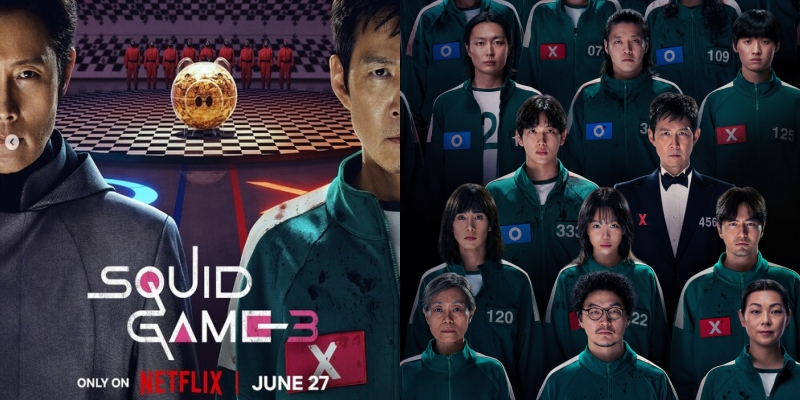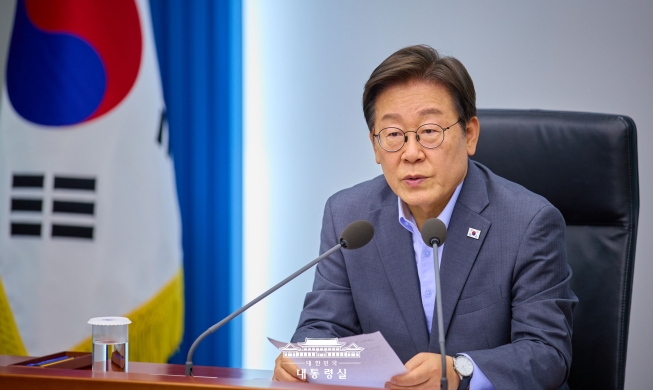- 한국어
- English
- 日本語
- 中文
- العربية
- Español
- Français
- Deutsch
- Pусский
- Tiếng Việt
- Indonesian
By Honorary Reporter Omnia Ameer from Egypt
Mohamed Shueikh is an Egyptian translation supervisor and quality controller at the Cairo, Egypt-based Masreya Media.
In a WhatsApp interview on June 27, he shared his experience dubbing in Arabic the hit Netflix series "Squid Game."
The following are excerpts from the interview.

Posters for third and final season of "Squid Game" (Netflix Korea)
Briefly introduce yourself.
I am Mohamed Shueikh, an Egyptian translator with nine years of experience in translating and adapting dubbing scripts. I am the translation supervisor and quality controller at Masreya Media. For "Squid Game," my role was to direct and supervise translators and make strategic decisions on language type, character names and places.
How was working on the final season since "Squid Game" was Netflix's first K-drama to be dubbed in Arabic?
It was great news as l loved the series. I always wondered what it would look like if it were dubbed in Arabic.
Give a simplified explanation of the dubbing process.
It begins with receiving the Korean videos, script and their English-language translations. A detailed translation plan is developed, where we decide the style and tone of language. Then comes the translation of character names, places and games.
Afterward, the assigned translators begin their work and I later supervise them. After translation is complete, the text is sent to an Arabic linguist for review to ensure clarity and linguistic accuracy for the voice actors. The final stage is the quality control phase in which we check everything again.
What issues arose in translating the script from English instead of Korean?
The correct pronunciation of Korean names and terms requires thorough searching. Knowledge of the Korean language and culture was crucial for this process since translations in English are often written from a different perspective, frequently leading to misinterpretations.
It wasn't easy for us Arabic speakers to accurately express the sounds of Korean letters in writing so that our voice actors could deliver them correctly. But we did provide the cast with the correct pronunciations and contexts. I also remember the hard work needed to synchronize the dubbing voices and the actors' lips.
What did you discover about Korean culture after working on the series?
I find Korean culture rich and unique in language, tradition and arts. I'm fascinated by the invention of Hangeul (Korean alphabet), one of the world's simplest writing systems, and iconic dishes like kimchi and bibimbap (spicy rice mixed with vegetables and meat). What truly impressed me is the language's precise word usage and details like how the word for "sister" differs based on age and gender.
msjeon22@korea.kr
*This article is written by a Korea.net Honorary Reporter. Our group of Honorary Reporters are from all around the world, and they share with Korea.net their love and passion for all things Korean.
Most popular
- Grammy-winning producer calls Suga of BTS 'amazing artist'
- 'Universal love, family' themes fuel success of 'King of Kings': director
- Seoul's 180 int'l conferences in 2024 rank 1st in Asia, 3rd in world
- Expansion of foreign app system raises tourist convenience
- Council sets minimum hourly wage in 2026 at KRW 10,320
